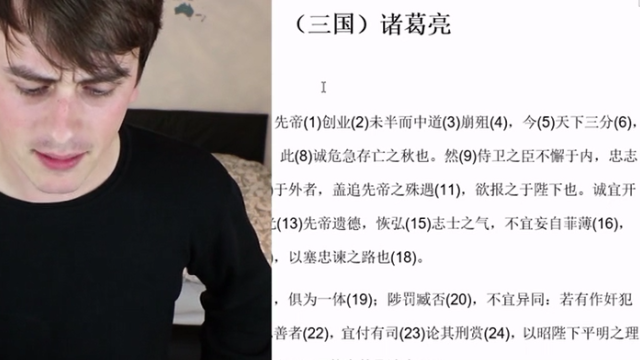耕牛也化妝:哈尼族牛體彩繪風(fēng)俗名揚(yáng)國際
作者:滬江英語編譯
來源:dailymail
2011-12-28 09:30
With their intricate patterns and bright colours, it is hardly surprising if these curious-looking painted bulls attract close attention. But the reason behind their colourful hides is actually meant to ward off intruders.
復(fù)雜的圖案,鮮艷的顏色,難怪這些神奇的彩繪牛會如此地奪人眼球了。但是,牛體彩繪背后的故事卻是為了阻擋猛獸入侵。
Artistic residents in Jiangcheng County, Yunnan Province, China decorated their bulls for a festival, but the tradition began from a small Chinese group who believed painting their bulls would protect their village.
中國云南省江城縣富有藝術(shù)細(xì)胞的居民們把彩繪牛體當(dāng)成了一種節(jié)日來慶祝,相傳這一傳統(tǒng)源于少數(shù)民族哈尼族,目的是為了保護(hù)自己的家園。
The Hani minority tale preached that the painted bulls would scare away tigers from wandering into their homes. And this tradition now gives people the prefect excuse to show off their artistic talents.
根據(jù)哈尼族的傳說,最初彩繪牛是為了嚇唬在附近游蕩的猛虎。而現(xiàn)在,這一活動卻無可爭議地展現(xiàn)了哈尼族的藝術(shù)天賦。
Altogether 48 teams joined this year's China-Laos-Vietnam Bull Painting Festival.
在今年的中老越彩繪??駳g節(jié)上,共有48支隊(duì)伍參加了比賽。
With bright blues, dazzling yellows and splashes of deep red and green, these bulls' makeover was a bright change from their usual brown or white skin. Elaborate scenes of countryside, people, weather and patterns were painstakingly etched and tidily painted, including even the bulls' horns.
鮮艷的藍(lán)色、耀眼的黃色、還有亮麗的深紅色和綠色,這些耕牛也從原來的棕色或白色變裝成了鮮艷奪目的彩色。所繪的圖畫包括郊外風(fēng)光、普通人民、天氣情況等,這些圖案都是一點(diǎn)一點(diǎn)、小心翼翼地繪制到牛體上的,甚至連牛角都給化了妝。
The Hani people in China are mainly spread across the counties on the the Honghe River in the Yunnan Province.?They have a population of 1.4 million, mostly engaged in agriculture.
哈尼族是中國的少數(shù)民族,主要分布在云南省紅河流域。人口約為140萬,以務(wù)農(nóng)為主。
- 相關(guān)熱點(diǎn):
- 英語文化
- 商務(wù)英語口語900句











